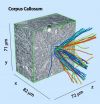(Press-News.org) MINNEAPOLIS, MN—October 23, 2012—Contrary to previous data, patients with prior open heart surgery, or coronary artery bypass graft surgery (CABG), who have a severe heart attack (STEMI) and receive a coronary stent have similar outcomes to patients without previous CABG, based on study of a large, prospective, regional STEMI network, being presented Oct. 23 at the 2012 Transcatheter Cardiovascular Therapeutics (TCT) conference.
Recognizing that the majority of data indicating worse outcomes for STEMI patients with prior CABG came from an older era of heart attack treatment, researchers at the Minneapolis Heart Institute Foundation and Minneapolis Heart Institute® (MHI) at Abbott Northwestern Hospital in Minneapolis sought to assess contemporary outcomes in its regional STEMI network from April 2003 to December 2011.
"Traditionally, it is believed that patients with prior CABG are at much higher risk, are less likely to receive reperfusion therapy and have worse outcomes; thus, these patients have been frequently excluded from clinical trials," explains Timothy D. Henry, MD, an interventional cardiologist at the MHI at Abbott Northwestern and director of research with the Minneapolis Heart Institute Foundation. "As a result, there is limited contemporary data on these challenging patients, and they often didn't receive the current standard of care for STEMI, which is percutaneous coronary intervention (PCI)."
Of the 3,552 consecutive STEMI patients in the study, 7.1 percent had prior CABG. These patients were older, more frequently male and had increased prevalence of diabetes. The prior-CABG group also had lower baseline ejection fraction, lower current smoking rates and were less likely to have a lesion identified as the clear culprit of the heart attack.
"In addition, these patients frequently have abnormal baseline EKGs and challenging coronary anatomy," Dr. Henry said. "While patients with prior-CABG in this study did have a slightly lower rate of reperfusion, our reperfusion rate was still much higher compared with previous studies."
Patients in both groups had similar door-to-balloon times and both in-hospital stays (4.8 vs. 5 percent) and 30-day stays (4.8 vs. 5.7 percent) were similar. At one year, patients with prior CABG had numerically higher mortality (10.8 vs. 9 percent) which was not statistically significant.
Prior studies have suggested increased mortality in patients with prior CABG, but that "may have reflected the lower rates of reperfusion and older PCI strategies," according to the study authors.
"The outcomes of both arms are excellent and very similar, which is promising," Dr. Henry states. "The one group in whom the outcomes were slightly worse—but not statistically worse—were those prior-CABG patients in whom the saphenous vein graft was the culprit lesion for the heart attack."
Based on their findings, the researchers concluded that STEMI outcomes in patients with prior CABG, regardless of the culprit lesion, may be as good as STEMI patients overall when treated with a uniform protocol with the same rapid treatment.
"These results are another example of the benefits of a regional STEMI network, and its ability to provide more unified care," Henry states.
### About the Minneapolis Heart Institute Foundation
The Minneapolis Heart Institute Foundation is dedicated to creating a world without heart disease through groundbreaking clinical research and innovative education programs. MHIF's mission is to promote and improve cardiovascular health, quality of life and longevity for all.
Scientific Innovation and Research – Publishing more than 120 peer-reviewed studies each year, MHIF is a recognized research leader in the broadest range of cardiovascular medicine. Each year, cardiologists and hospitals around the world adopt MHIF protocols to save lives and improve patient care.
Education and Outreach – Research shows that modifying specific health behaviors can significantly reduce the risk of developing heart disease. Through community programs, screenings and presentations, MHIF educates people of all walks of life about heart health. The goal of the Foundation's community outreach is to increase personal awareness of risk factors and provide the tools necessary to help people pursue heart- healthy lifestyles.
About the Minneapolis Heart Institute®
The Minneapolis Heart Institute® is recognized internationally as one of the world's leading providers of heart and vascular care. This state-of-the-art facility combines the finest in personalized patient care with sophisticated technology in a unique, family-oriented environment. The Institute's programs, a number of which are conducted in conjunction with Abbott Northwestern Hospital, address the full range of heart and vascular health needs: prevention, diagnosis, treatment and rehabilitation.
Contact:
Steve Goodyear
Minneapolis Heart Institute Foundation
612-863-1658
sgoodyear@mhif.org
http://mhif.org
Prior cardiac surgery does not mean worse outcomes for STEMI patients who receive stent
2012-10-23
ELSE PRESS RELEASES FROM THIS DATE:
EARTH: Earthquake? Blame it on the rain
2012-10-23
Alexandria, VA – The U.S. Geological Survey's website states it in no uncertain terms: "There is no such thing as 'earthquake weather.'" Yet, from at least the time of Aristotle, some people have professed links between atmospheric conditions and seismic shaking. For the most part, these hypotheses have not held up under scientific scrutiny and earthquake researchers have set them aside as intriguing but unfounded ideas. However, in the last decade new efforts to identify effects of weather-related, or in some cases climate-related, processes on seismicity have drawn new ...
Study shows New Jersey's decal for young drivers reduced crashes
2012-10-23
Philadelphia, October 23—A new study shows that New Jersey's law requiring novice drivers to display a red decal on their license plates has prevented more than 1,600 crashes and helped police officers enforce regulations unique to new drivers. The first-in-the-nation decal provision went into effect in May 2010 as part of N.J.'s Graduated Driver Licensing (GDL) law. Nearly every state has a GDL law on the books, but "Kyleigh's Law," named for a teen driver killed in a 2006 N.J. crash, is the first one that requires drivers under age 21 to display their probationary status ...
Effective treatment helps Danes with personality disorders
2012-10-23
For seven years, Carsten René Jørgensen from the Department of Psychology and Behavioural Sciences at Aarhus University has collaborated with the Clinic for Personality Disorders, Aarhus University Hospital, Risskov on examining the extent to which modern psychoanalytic psychotherapy can help the Danes suffering from severe borderline personality disorders.
Among the first to examine these forms of modern psychoanalytic treatment of severe personality disorders, the study shows a clear trend; a vast majority of patients do better after a two-year course of treatment.
- ...
Improving medical research education across Europe
2012-10-23
Fostering and improving medical research education is crucial to biomedical research and clinical patient treatment, and as such it has been identified as the main challenge in every joint European Science Foundation (ESF) - European Research Medical Councils (EMRC) strategy report. A new policy report entitled "Medical Research Education in Europe" has just been published looking at crucial factors to improve medical research education throughout Europe.
The new science policy briefing report features an overview of medical researchers' training across Europe. It identifies ...
Leading European experts call for more rigorous scientific evidence for healthcare interventions
2012-10-23
Leading clinicians and health researchers from across Europe say much greater emphasis must be placed on the scientific evidence for the effectiveness of treatments and other healthcare interventions to ensure patients receive the best care available. The call is contained in a Science Policy Briefing published by the European Medical Research Councils, which also made ten key recommendations on how to improve the quality of research and healthcare in Europe.
The briefing, 'Implementation of Medical Research in Clinical Practice', says that there must be much greater ...
Biologists record increasing amounts of plastic litter in the Arctic deep sea
2012-10-23
Biologists record increasing amounts of plastic litter in the Arctic deep sea: studies confirm that twice as much marine debris is lying on the seabed today compared to ten years ago
Bremerhaven, 22nd October 2012. The seabed in the Arctic deep sea is increasingly strewn with litter and plastic waste. As reported in the advance online publication of the scientific journal Marine Pollution Bulletin by Dr. Melanie Bergmann, biologist and deep-sea expert at the Alfred Wegener Institute for Polar and Marine Research in the Helmholtz Association. The quantities of waste observed ...
Next-generation vaccines -- eliminating the use of needles
2012-10-23
Lead scientist Professor Simon Cutting, from the School of Biological Sciences at Royal Holloway, has developed the jabs through the use of probiotic spores. He carried out fundamental studies into the biology of the bacterium Bacillus subtilis which attracted the attention of microbiologists due to its ability to form spores that can last millions of years before germinating under the appropriate environmental conditions.
Professor Cutting says: "The mechanisms by which this process occurs have fascinated microbiologists for decades making it one of the most intensively ...
Turbulent flows in 2D can be calculated in new model
2012-10-23
Turbulent flows have challenged researchers for centuries. It is impossible to predict chaotic weather more than a week in advance. Wind resistance on a plane or a car cannot be calculated precisely, since it is determined by atmospheric turbulence. Now, however, researchers from the Niels Bohr Institute have succeeded in developing a statistical model that can replicate the chaotic flows and thereby provide a better understanding of the process. The research results are published in the scientific journal, Physics of Fluids.
"Without knowing the movements in detail, we ...
Quantum computing with recycled particles
2012-10-23
A research team from the University of Bristol's Centre for Quantum Photonics (CQP) have brought the reality of a quantum computer one step closer by experimentally demonstrating a technique for significantly reducing the physical resources required for quantum factoring.
The team have shown how it is possible to recycle the particles inside a quantum computer, so that quantum factoring can be achieved with only one third of the particles originally required. The research is published in the latest issue of Nature Photonics.
Using photons as the particles, the Bristol ...
A circuit diagram of the mouse brain
2012-10-23
This press release is available in German.
What happens in the brain when we see, hear, think and remember? To be able to answer questions like this, neuroscientists need information about how the millions of neurons in the brain are connected to each other. Scientists at the Max Planck Institute for Medical Research in Heidelberg have taken a crucial step towards obtaining a complete circuit diagram of the brain of the mouse, a key model organism for the neurosciences. The research group working with Winfried Denk has developed a method for preparing the whole mouse ...

